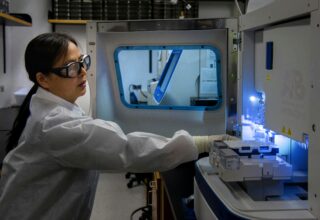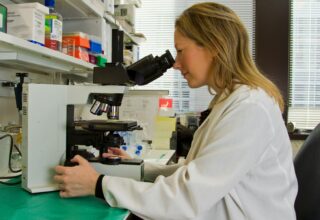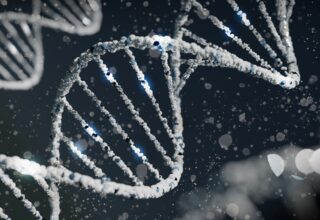By becoming a member of our site, you can add the content you like to your favorites, and present the content you have produced or liked on the internet to our site visitors with the send content option.
Zaten bir üyeliğiniz mevcut mu ? Giriş yapın
By becoming a member of our site, you can add the content you like to your favorites, and present the content you have produced or liked on the internet to our site visitors with the send content option.
You Can Benefit from All Options Exclusive to Our Members by Registering
Next Content:
Geopolitical Shifts: Emerging Powers and Global Alliances
- Home Page
- #bioengineering
- Bioengineering Breakthroughs: Ethics and Implications
Bioengineering Breakthroughs: Ethics and Implications

Bioengineering breakthroughs are transforming medicine and technology, offering solutions to some of the most pressing challenges. However, these advancements bring significant ethical concerns and implications that must be carefully considered.
One of the most notable bioengineering breakthroughs is CRISPR-Cas9, a technology that allows for precise editing of DNA. This has the potential to cure genetic disorders, improve crop resilience, and even eliminate diseases. However, the ability to edit the human genome raises serious ethical questions. The potential for designer babies and unintended genetic consequences must be addressed to ensure responsible use.
Stem cell research is another area where bioengineering is making strides. Regenerative medicine using stem cells can potentially repair or replace damaged tissues and organs. This offers hope for patients with conditions that were previously considered untreatable. Yet, the use of embryonic stem cells is controversial, with debates centered on the moral status of embryos and the balance between scientific progress and ethical responsibility.
Bioengineering also extends to the development of biomaterials and tissue engineering. These innovations are revolutionizing prosthetics and implants, making them more compatible with the human body and improving patient outcomes. However, the integration of synthetic materials into the human body raises questions about long-term effects and the definition of what it means to be human.
In the field of agriculture, genetically modified organisms (GMOs) are a significant bioengineering breakthrough. GMOs can increase crop yields, enhance nutritional content, and reduce dependency on pesticides. Despite these benefits, there is public concern about the environmental impact, food safety, and ethical considerations surrounding the modification of natural organisms.
The ethical implications of bioengineering are profound. The potential for bioweapons, the misuse of genetic information, and the exacerbation of social inequalities are all critical issues. Ensuring equitable access to bioengineering advancements is crucial to prevent a divide between those who can afford such technologies and those who cannot.
Moreover, the regulatory landscape must evolve to keep pace with these breakthroughs. Policies and frameworks are needed to oversee the development and application of bioengineering technologies, ensuring they are used ethically and safely.
In conclusion, bioengineering breakthroughs hold incredible promise for advancing human health, agriculture, and technology. However, these advancements come with significant ethical concerns and implications. As we continue to explore the possibilities of bioengineering, it is essential to address these issues proactively to ensure that the benefits are realized responsibly and equitably.
We offer our respects and wish you a good reading. – Who Learns What? Team
- On-Site Comments





























